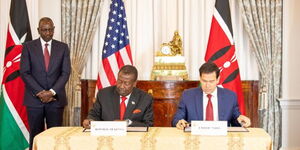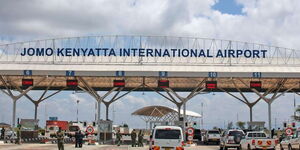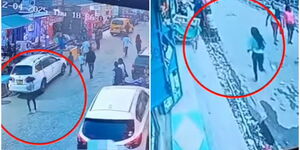Inspector General of Police Douglas Kanja has issued firm orders to all county commanders across the country in a bid to tackle the worrying cases of corruption within the police force.
Going forward, county commanders will be required to form corruption-prevention committees to probe graft cases involving police officers.
While speaking during a high-level meeting with senior commanders on Thursday, June 5, Kanja made it clear that, going forward, commanders would be held personally responsible for any form of corruption which occurs under their watch.
The IG further explained that the move was necessitated by the need to restore integrity in the police service, which he acknowledged was grappling with ethical concerns.
"We wanted to have this sitting so that we can be able to discuss serious matters like corruption within the police service. I know corruption is not about the police alone — it is a societal problem," Kanja said.
"However, as an organisation, we must address it from where we sit," he added.
Besides the formation of the committees, commanders will also be required to conduct a SWOT analysis to identify both internal and external threats to their integrity.
This is the latest policy system implemented by Kanja, coming just months after he announced plans to implement a digital policing system to minimise contact between the police and the public and avoid corruption.
Addressing the funding of the said system, Kanja said in February that there were no concerns regarding the same, as several donors had come out in support of it.
His announcement came after the Ethics and Anti-Corruption Commission (EACC) nabbed three traffic police officers who were taking bribes along Moi Avenue in Nairobi.
The idea of digitising the system has been floated around for months, with the main aim being to minimise the contact between the public and the police to encourage more people to report crimes without fear.
On January 14, Interior Cabinet Secretary Kipchumba Murkomen stated that digital Occurrence Books (OB) would be available by April this year.












